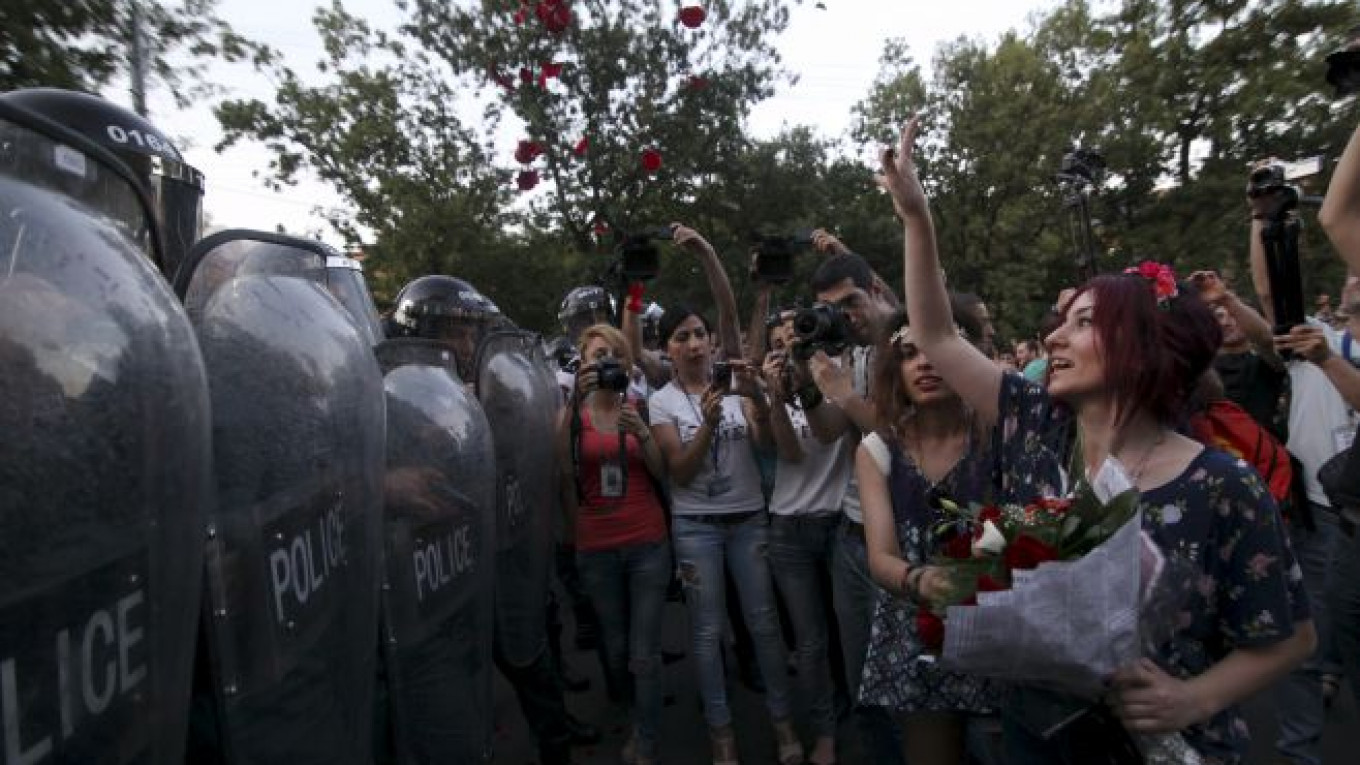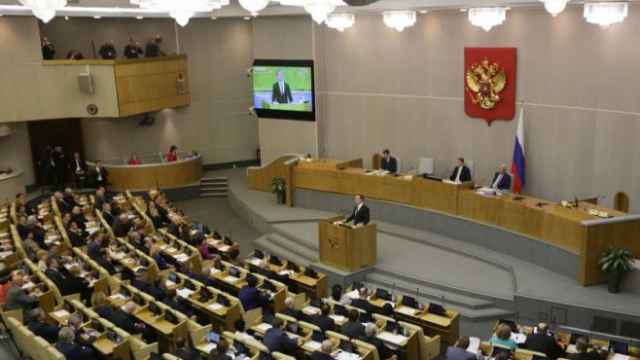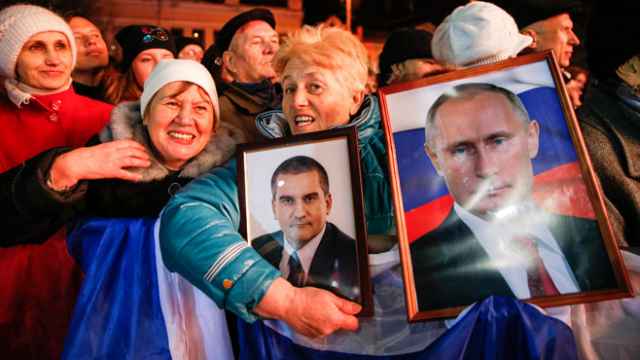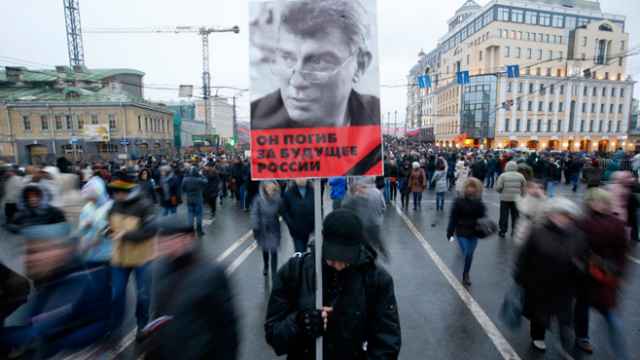The prospect of popular unrest forcing political change in Russia has become almost an obsession for the Putin regime in recent years.
In the latest manifestation of this fear, the Russian Defense Ministry announced plans earlier this month to fund new research on preventing color revolution. "Recent events have shown that these threats are absolutely real and long-lasting," explained Major General Mikhail Smyslov. "Naturally, we have to understand how these threats are repelled."
President Vladimir Putin likewise warned of the threat posed to Russia by "color revolution technology" in a recent speech to senior law enforcement personnel. "Ranging from organizing unlawful public protests to open propaganda of hatred and enmity in social networks," Putin said, "the aim is obvious — to provoke civil conflict and strike a blow at our country's constitutional foundations and ultimately even at our sovereignty."
The term "color revolution," now often used by Russian officials to broadly denote "people power" and protest, refers to a series of primarily nonviolent revolutions against authoritarian regimes that swept through Serbia, Georgia, Ukraine, Lebanon and Kyrgyzstan from 2000 to 2005.
Following these events and the more recent "Arab Spring" uprisings and Maidan in Ukraine, an overarching official narrative has crystallized in Russia: Western powers support and direct opposition activists in other countries, using them to stage color revolutions and destabilize regimes in service of geopolitical interests while creating chaos.
Accordingly, the Kremlin frames its determination to prevent color revolution in Russia as the defense of sovereignty and stability. Russia's rulers are, of course, also motivated by a desire to stay in power, and color revolution has been treated as an existential threat.
The mass protest movement that arose in Russia in December 2011 was deftly and harshly repressed, with its leaders brought before the courts. The penalties for "unsanctioned" protest greatly increased.
Civil society is being squeezed almost out of existence, with new legislation stigmatizing many groups as "foreign agents" and "undesirables" while severely limiting permitted activities and funding. Independent media has come under heavy pressure, and the state is increasing its efforts to control the Internet and social media.
War veterans, nationalist bikers and patriotic politicians have even launched an "Anti-Maidan" movement, essentially pro-government street muscle that can be quickly deployed against popular unrest, with the stated aim of "preventing color revolutions."
In short, the recent rhetoric and actions of Russia's ruling regime suggest that it sees mass civil resistance as one of the greatest threats to its hold on power.
Can color revolution really be so scary? From a strategic standpoint, the Kremlin's obsession may be well founded. Most other common scenarios of major political change seem less likely in Russia.
Despite recent saber rattling, a military invasion of Russia is hardly a practical concern in the current international system. An armed rebellion for control of Moscow seems similarly unlikely and would almost certainly be easily crushed.
An elite coup has been rumored as possible at times, but even this would likely not be an existential threat for the regime, only Putin. Elections, the bane of many Western politicians' existence, have a different meaning in the context of Russia's managed democracy.
Meanwhile, the unnerving speed with which people power revolutions can wash away entrenched regimes and alter entire political landscapes can be shocking, as witnessed from Serbia to Tunisia. This is why thoughts of color revolution seem to be keeping Russia's rulers up at night.
Will Wright is a political analyst and journalist focused on Eurasia.
A Message from The Moscow Times:
Dear readers,
We are facing unprecedented challenges. Russia's Prosecutor General's Office has designated The Moscow Times as an "undesirable" organization, criminalizing our work and putting our staff at risk of prosecution. This follows our earlier unjust labeling as a "foreign agent."
These actions are direct attempts to silence independent journalism in Russia. The authorities claim our work "discredits the decisions of the Russian leadership." We see things differently: we strive to provide accurate, unbiased reporting on Russia.
We, the journalists of The Moscow Times, refuse to be silenced. But to continue our work, we need your help.
Your support, no matter how small, makes a world of difference. If you can, please support us monthly starting from just $2. It's quick to set up, and every contribution makes a significant impact.
By supporting The Moscow Times, you're defending open, independent journalism in the face of repression. Thank you for standing with us.
Remind me later.






